Menstrual Health : AFPEEC Parleys With Ekoundoum Girls, Women
- Par Kimeng Hilton
- 13 juin 2024 13:33
- 0 Likes
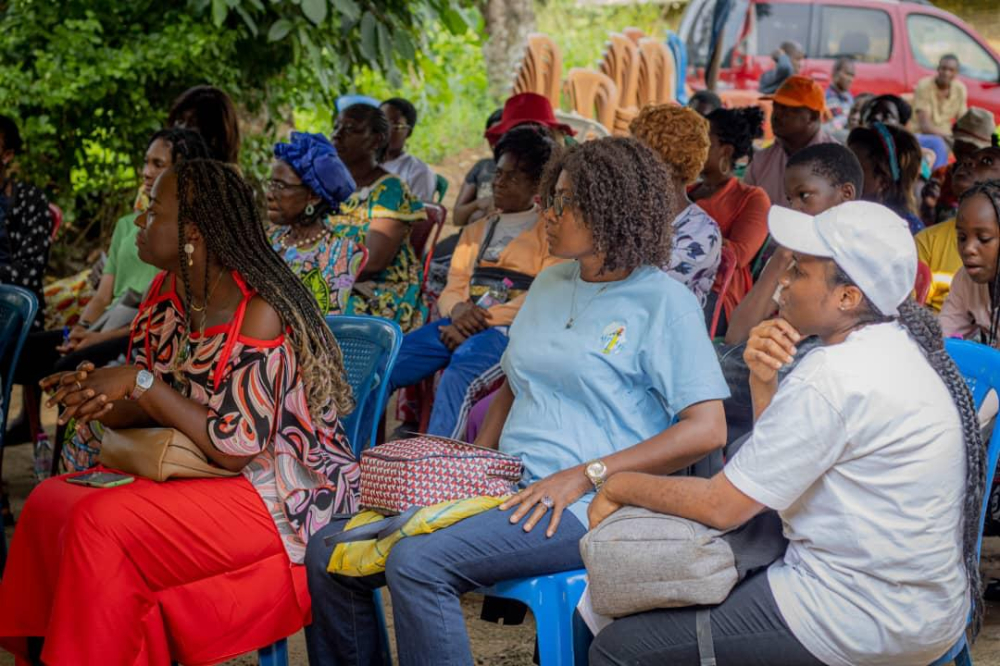
The outreach on Tuesday, June 12, 2024 in the rural community located on the outskirts of Yaounde was to raise awareness hygiene and women’s health rights.
The Association of Women Professionals in Water and Environment of Cameroon, AFPEEC, a not-for-profit organisation is determined the raise the level of ignorance on menstrual health amongst rural girls and women. By promoting Water, Hygiene and Sanitation, WASH best practices. All in furtherance of United Nations Sustainable Development, SDG Goal 6. The goal aims to ensure access to adequate and equitable sanitation and hygiene for all and to end open defecation. Paying particular attention to the needs of women and girls and people in vulnerable situations. Water supply and sanitation therefore have a direct and positive impact on menstrual hygiene management.
Mission To Ekoundoum
On Tuesday, June 12, 2024, AFPEEC members were in the rural community of Ekoundoum in Mefou and Akono Division of Centre Region – about 50 km from Yaounde. Led by AFPEEC President, Geraldine Mpouma Logmo, the team held discussions with about 60 Ekoundoum women. As part of the association’s WASH Initiative for Women, IWASH-F. Which seeks to help women with their hygiene, water and sanitation needs.
Best Practices For Water Purification, Conservation
Specifically, by adopting best practices for water purification and conservation; improving knowledge on menstrual hygiene management; and raising awareness on the risks associated with waterborne diseases. As well as strengthening AFPEEC’s educational and awareness-raising action in the direction of communities; and improving the sanitation of the living environment.
Task Accomplished!
“On the whole, I was quite satisfied with the activity we carried out in Ekoundoum community. We had practical training sessions with women, including a workshop on menstrual health which was attended by many young girls on holidays. I believe this was useful to them. Menstrual health has until now been a taboo subject which is responsible for young girls keeping away from school. In other words, when girls stay away from school because they are seeing their periods, there is likelihood that they will not also perform well in their studies,” commented Geraldine Mpouma Logmo.
Preparing Young Girls For Leadership
“In order for young girls to receive good training to prepare them for leadership roles in future, menstruation should not should not serve as a reason for discrimination. The outreach we organised in Ekoundoum community is only the beginning of a long list of activities we have planned. We were so pleased with the turnout of the women and young girls in Ekoundoum, some from neighbouring communities,” Mrs Logmo noted.
Because Of Their Support
“We are so grateful to institutions that assisted in the successful organisation of the outreach, including the African Association for Water and Hygiene with headquarters in Abidjan, Cote d’Ivoire of which AFPEEC is a member. We are also grateful to the Ministry of Water Resources and Energy that was represented by the Director of Hygiene; Ekoundoum authorities who took part in the event; and the Cameroon Water Utility Cooperation, CAMWATER, my employers, who have always supported AFPEEC,” she added.
Attaining SDG 4
Concluding, “Overall, I am so satisfied that we accomplished what we set out to do. Much remains to be done and we count on the support of different partners to succeed in attaining Sustainable Development Goal 4, which is to assure access to quality water, gender equality…..”
AFPEEC’s 2022-2025 Priority Action Plan
IWASH-F is part of AFPEEC’s 2022-2025 Priority Action Plan and in particular within the framework of exchanges between AFPEEC and UNICEF for the establishment of a future partnership to raise awareness among rural communities of women and youth on WASH issues. In Ekoundoum, AFPEEC held included a meeting with the authorities, practical workshops with women and youth, exchange and awareness on water-borne diseases and climate change; techniques for making potable water and preserving it in rural areas.
WASH Services Made Reachable
As well as handwashing techniques; menstrual hygiene management; production of sanitary napkins and menstrual bracelets. Expected results from the training include mastery of good menstrual health practices; transmission of knowledge to children and the community; visibility of AFPEEC; and better knowledge of menstrual hygiene management.
Thinking WASH, Thinking Women
Women represent more than half (50.6%) of the population of Cameroon and are also the main users of Water, Hygiene and Sanitation, WASH services. Cameroon is a signatory to the main instruments for the protection and promotion of women's rights (CEDAW2 Maputo Protocol,3 etc.). But women who suffer the most from the lack of access to drinking water and adequate sanitation services are still stigmatized because of menstruation for various reasons.
Challenges Of Managing Menstrual Health
Thus, women and girls encounter difficulties in the safe and hygienic management of their menstruation due to these very precarious living condit...
Cet article complet est réservé aux abonnés
Déjà abonné ? Identifiez-vous >
Accédez en illimité à Cameroon Tribune Digital à partir de 26250 FCFA
Je M'abonne1 minute suffit pour vous abonner à Cameroon Tribune Digital !
- Votre numéro spécial cameroon-tribune en version numérique
- Des encarts
- Des appels d'offres exclusives
- D'avant-première (accès 24h avant la publication)
- Des éditions consultables sur tous supports (smartphone, tablettes, PC)







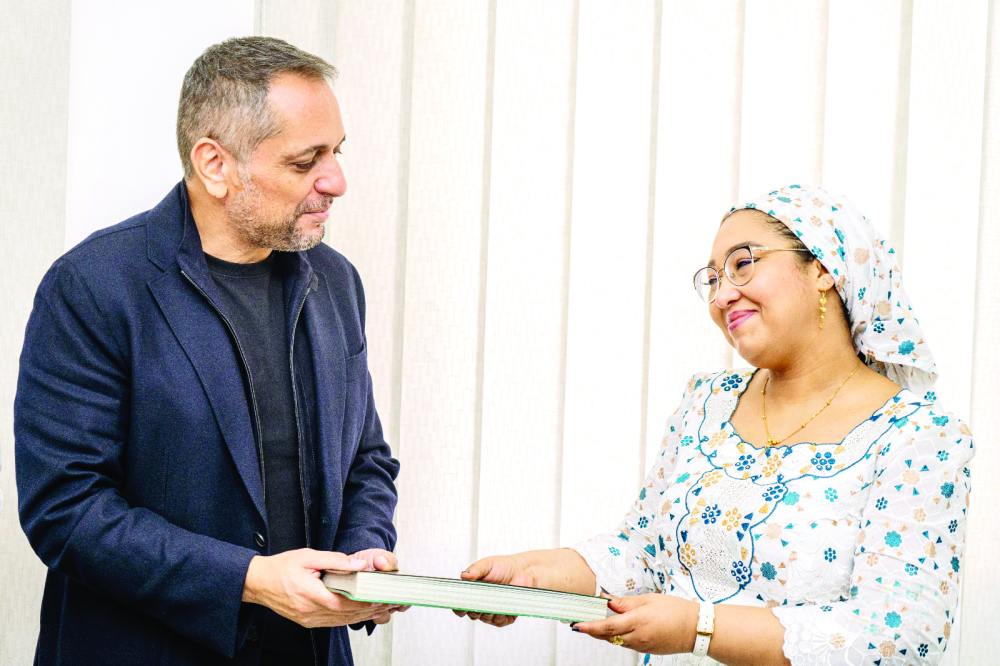
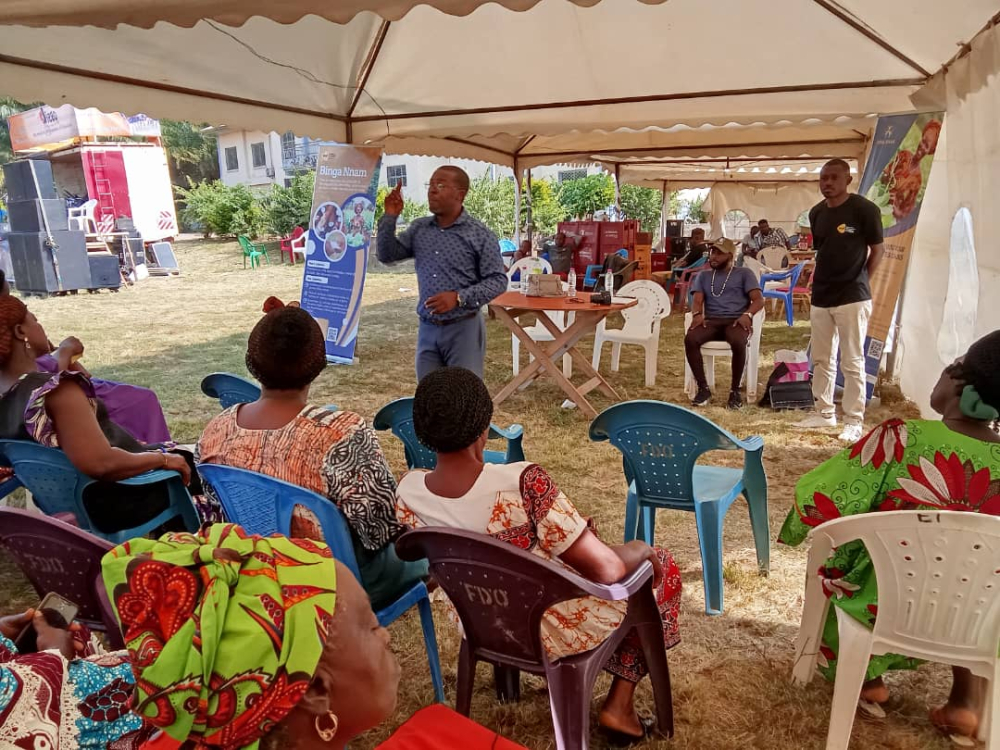
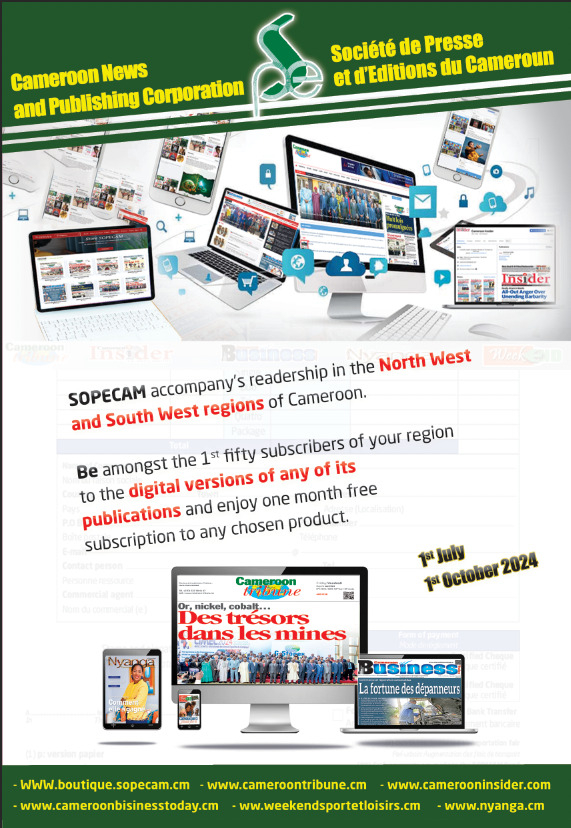
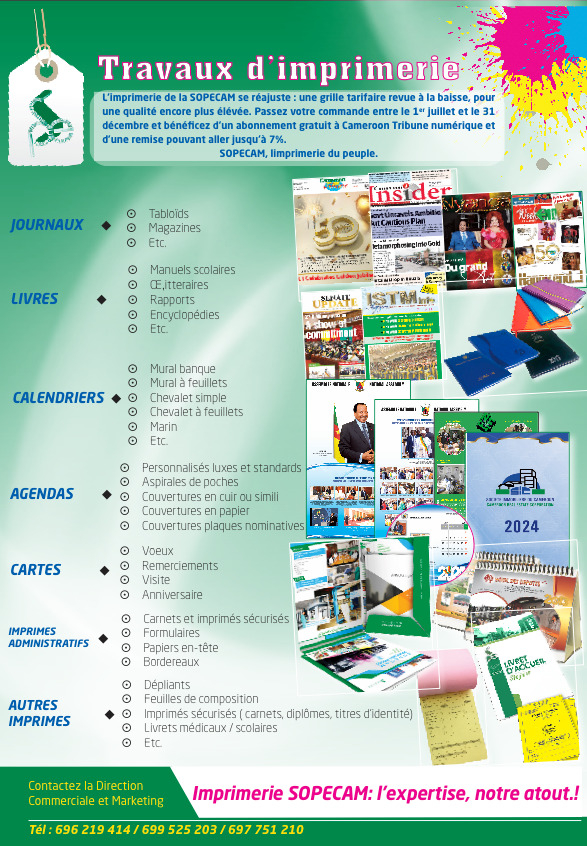
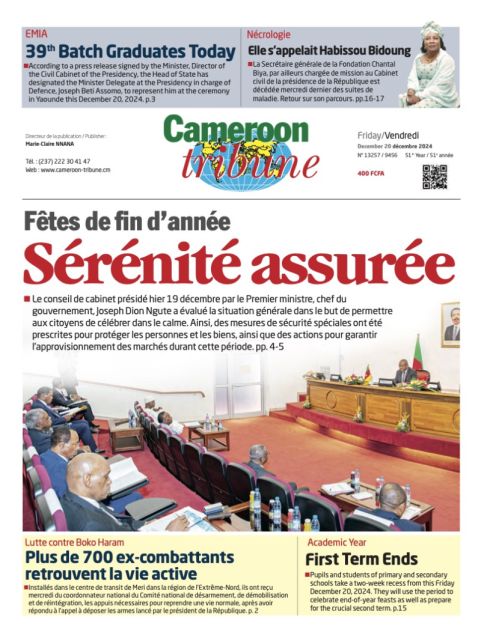




Commentaires